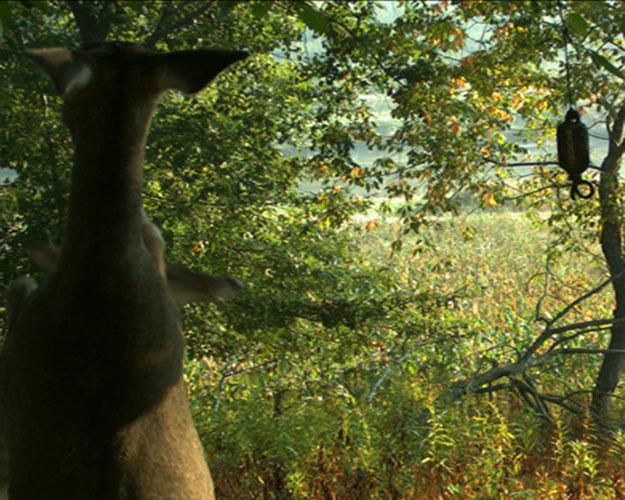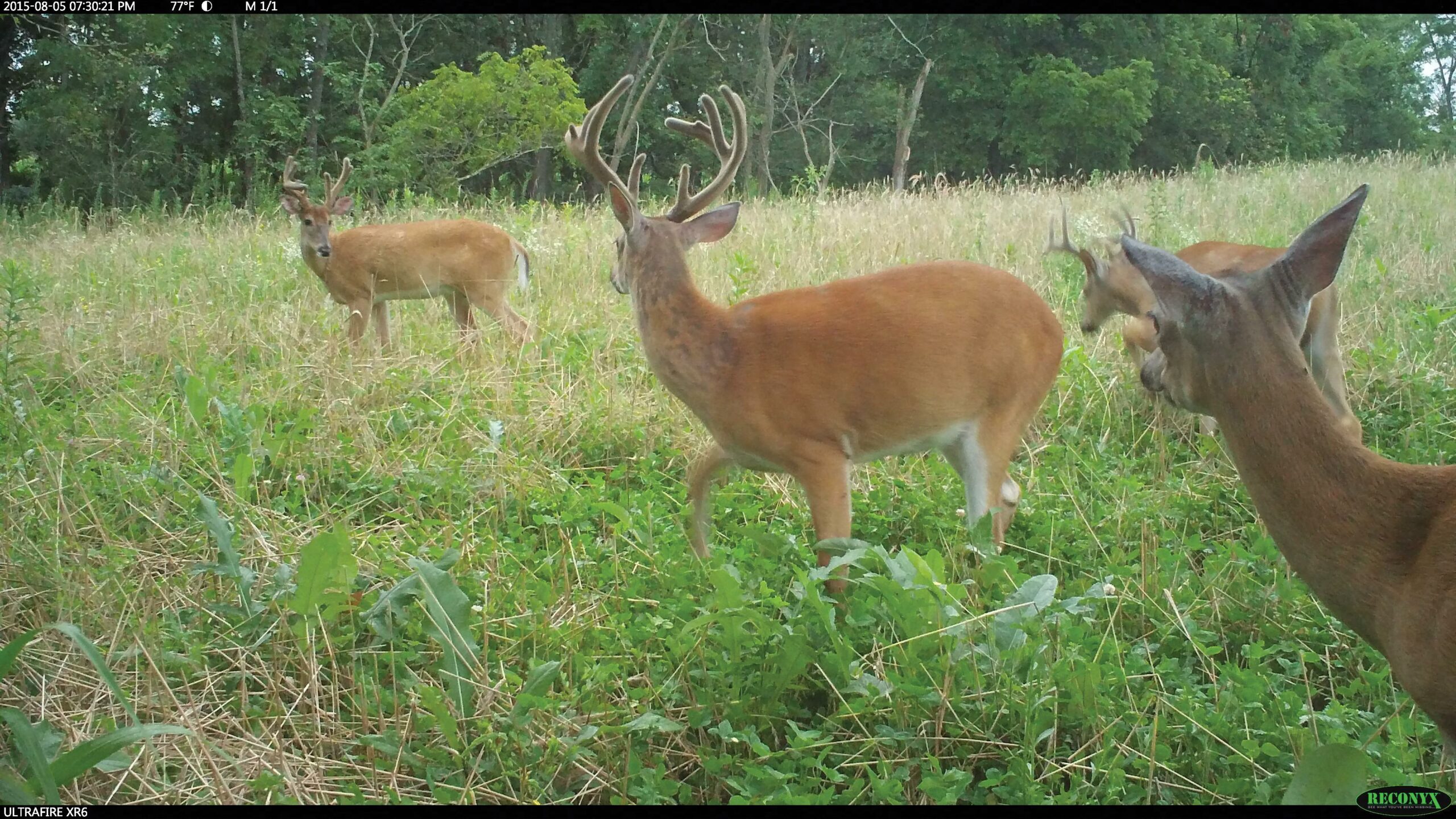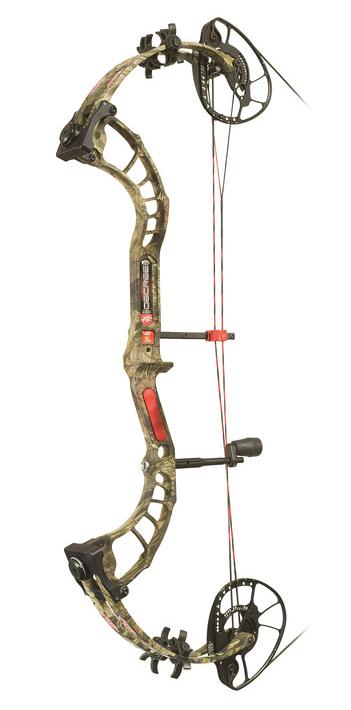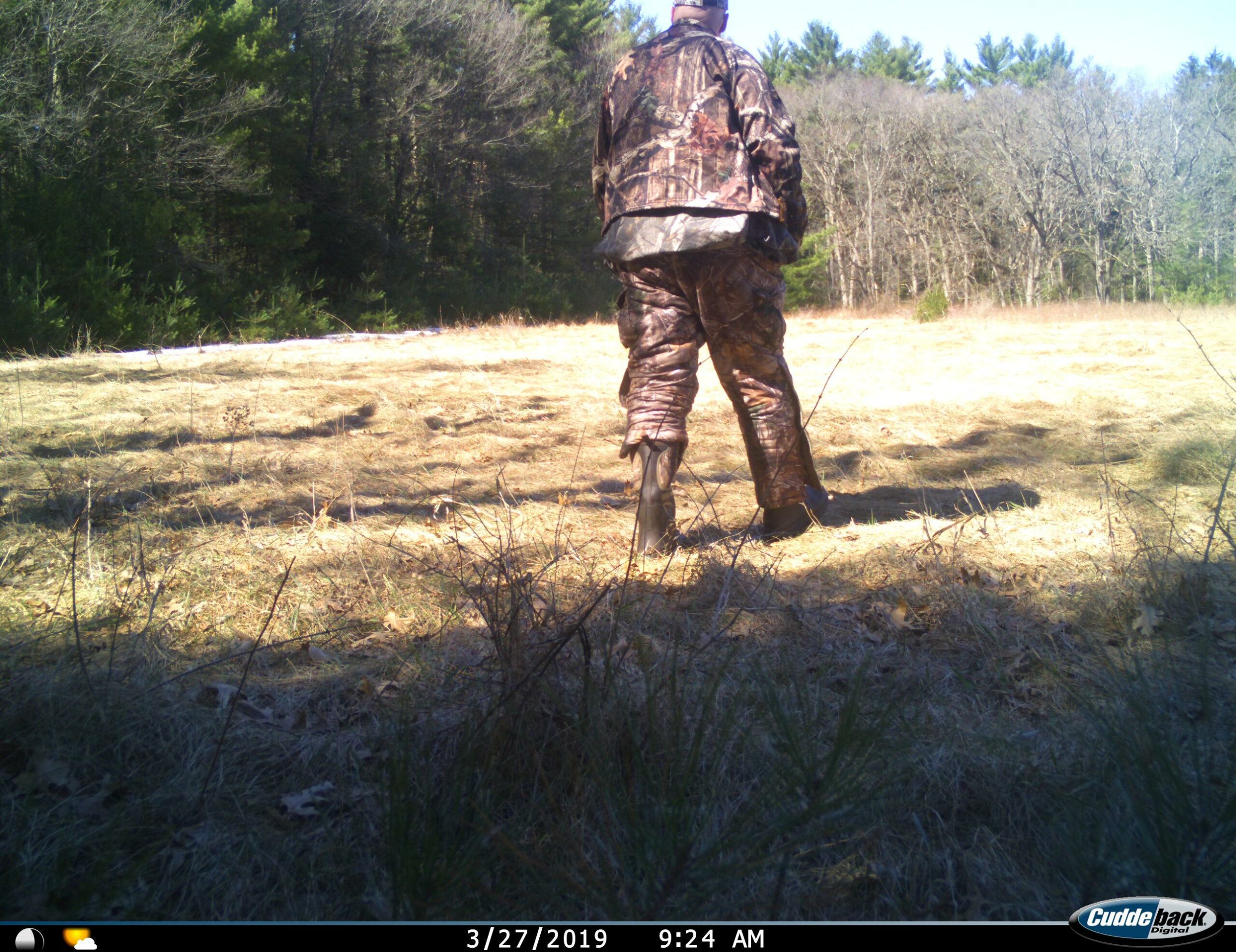It’s amazing how deer can sometimes be guided to do what you want them to do. We’re not talking about “deer whisperer” hocus pocus or anything like that; we mean making subtle changes in a deer’s environment that encourages them to take specific and desired courses of action.
Probably 10 years ago, I wanted to set up a hunting spot behind the house that was quick to get into after work. Sometimes, especially after daylight savings time ended, I had only 30 minutes between the end of the workday and dark to hunt. I needed a place I could quickly walk to and one that was positioned so I could get into my stand without blowing out any deer in the area.
My choices were extremely limited. The area behind the house was a steep, decades-old cow pasture that had been overtaken by hardwoods, greenbriers, autumn olives, and a choking mix of grape vines and hawthorn trees. There was a marginal flat running along the hillside that deer used to travel from one thicket to the next, but it offered no stand opportunities. Below this flat, though, was just the barest trace of a deer trail. Actually, it was the remnant of a cattle path from decades past that deer would occasionally step onto. It was here that I found enough open area to launch an arrow to around 25 or 30 yards. I could enter the woods about 40 yards away, heading into the wind, and I could walk out of the house and be on my stand in five minutes.
Perfect.
The problem was, the deer didn’t think too highly of the area. The first year I bowhunted that parcel, the action was less than exciting.

The following year, I put out a trace mineral block I got from the hardware store for about $7 to try to attract deer. That got their attention. The next year, I put out a new block and started to drip some deer urine around the site. That old cattle trail soon became worn down to fresh dirt and another trail showed up, this one coming off the flat above.
In the years since, this spot has become my “freezer supply zone.” When I need to put venison on ice, it’s the go-to place. Any deer cruising through the country usually wends its way down to my stand. The ground is barren from the years of pawing and licking, and the deer have even begun to use my own beaten path to my stand for their travel route to the hay field below my house.
Most importantly, they don’t always come this way just to lick minerals or check out whatever scent I may have hanging about. I managed to successfully bend their normal travel habits along this side of the hill.
Last year, during the week leading up to the rut, I had several non-shooter bucks cruise by my stand, simply going from here to there. They were sniffing for hot does, and this was the area those bucks knew they had to check out.
In short, I created a whitetail happening to suit my hunting needs — a place I could get to quickly and easily with some assurance that deer would show up.
A lot of hunters are no different. They may have limited time to hunt or limited property to hunt on, and attracting deer toward their available hunting spot is their only option.
How to Attract Deer
If that sounds like you, here’s a few helpful hints to get things heated up in your hunting country.
Area
First, of course, is to figure out the area where deer are most likely to be or would be likely come to, if given a good reason. Look for existing travel routes through the area. Trails with fresh prints are good indications. Next, verify recent activity by setting up a trail cam. Capturing a deer on the camera every other day or so may not get you all pumped up, but that’s okay. At this point, you just want to determine that the area has the potential for deer to pass through.
Trace Mineral Block or Salt Lick
Once you’ve decided that the site has potential, you need to give deer a reason to linger. For that, I’ve found no better performing or more cost-effective way to do this than to set out a trace mineral block or to establish a salt lick using a granulated salt/mineral mix. You’ll first need to check the game laws to make sure that this is legal in your state because some states lump salt licks under baiting.
Should establishing a mineral lick not be an option open to you (you also need to ask the landowner’s permission before doing this), the other way to set up a must-visit site is to start a few scrapes.
Mock Scrapes and Licking Branches
Most deer hunters understand that scrapes (and their inherent lick branches) in the whitetail world are an important means of communication, allowing deer to know who’s in the neighborhood. These are particularly important for bucks as breeding season gets in full swing. Dominant bucks use lick branches and scrapes (the two go together like peanut butter and jelly) to reinforce their territorial claims and to check for does that may be ready to breed. (Does use scrapes and lick branches, too.)
What a lot of hunters don’t realize is that scrapes and lick branches are used year-round, just not as heavily as during the pre-rut and rut. That means it is perfectly fine to start a mock scrape mid- to late summer (as well as during the peak months of October and November) in your targeted hunting area.
Where to place a mock scrape or two depends on your situation. You’ll probably want one within bow reach come hunting season, but if the pre-season objective is to get deer excited about your area, you just need to put them where the deer will find them and where they’ll be willing to investigate. Putting one in the vicinity of your mineral lick is an obvious choice because it will reinforce in the mind of resident deer that this is the happening place to check out. Lacking some other attractant, start by placing your mock scrape just off the travel routes. This way, passing deer will be sure to take notice.
When making a scrape, know that the really important component here is the lick branch. Bucks rub their heads on these prominent, low-hanging branches in order to transfer their scent onto the limb as a way to say, “I was/am here.” The pawed ground directly beneath the lick branch, while important, is not the primary draw. Bucks and does alike will come by to lick and sniff the branch and to leave their own scents. So, always make your mock scrape beneath an overhanging limb that is 4 or 5 feet above the ground.
Deer Scents
That’s step one. Step two is to give deer a reason to check out your mock scrape. To get things rolling, sprinkle some deer urine (real or synthetic) onto the scrape.
Early in the season, we suggest a straight doe urine, such as Select Doe Urine or Golden Doe. These urines do not contain estrous scent, which is a key element during the rut but not important during the summer and early bow season. Passing deer will likely pause to check it out and hopefully start licking the branch and depositing their own urine on the scrape or close to it, thereby perpetuating the scrape you started.

Assuming you have the acreage, it is a good idea to make a couple more scrapes in the vicinity —perhaps 50 to 100 yards apart — to give deer a sense that something’s going on here.
As the season progresses into the pre-rut, feel free to go with a more aggressive scent strategy on your scrapes and any natural scrapes that may pop up in the area. For this, broad-spectrum scents like Hot Scrape or Active Scrape do well. These scents incorporate (or mimic, in the case of the synthetic Hot Scrape) urine from both does in estrous and bucks. That delivers a serious curiosity appeal to bucks, who are now beginning to solidify their territory and figure out the area does and identify any potential challengers leading up to the rut.
At this point, it’s wise to minimize your impact in the targeted hunting zone. Here is where scent drippers come into play. Products like Magnum Scrape Dripper can hold up to four ounces of liquid scent and dispense it, drop by drop, over a two- to three-week period. This way, the scent delivery is steady and you can stay away from the area for a long stretch. Remember, it doesn’t take a lot of pressure to push a buck out of the country. You want to keep intrusions to a minimum.

To help prevent that and help attract deer, be sure you tend to your hunting area — whether it is changing trail cam batteries and memory cards or refilling a scent dripper — as if you were actually hunting. Minimize noise and always de-scent yourself before going in. This means washing down with scent neutralizers, such as those found in Wildlife Research Center‘s Personal Care Kit, spraying down hat-to-boot in a quality scent elimination formula, and wearing rubber gloves whenever you need to handle anything that will remain on-site (such as a trail cam or scent dripper).

With hunting property becoming increasingly difficult to access and territory seeming to shrink with each passing season, being able to play the hand you’re dealt becomes ever more important. Sometimes you simply must take matters into your own hands and try to bend those deer to your will. Short of creating a food plot, these strategies should help you attract deer this season.
— PAID PARTNER CONTENT. This content is brought to you by a D&DH advertising sponsor.


